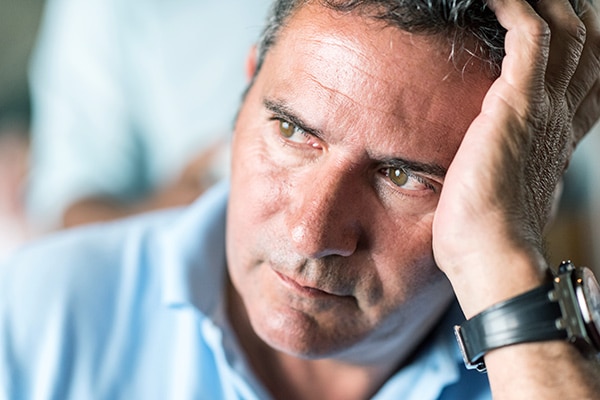- Counseling & Mental Health
Everyone will have a story one day about what changed for them during the pandemic. For David*, almost everything has changed.
David’s business has had to close due to the pandemic, and he doesn’t know when he will earn an income again. On top of this, David is going through a difficult divorce, and is suffering from the lack of connection he now has with his two children. Feeling hopeless and alone, David confided in a friend that he wasn’t sure if he wanted go on living. Knowing about JFCS’ teletherapy services for people of all ages, David’s friend immediately connected him with JFCS.

Robyn Bloom, Licensed Marriage and Family Therapist at JFCS, says more and more people like David are calling in need of urgent support. More than half of US adults report that the pandemic has negatively impacted their mental health, and depression, anxiety, insomnia, and substance abuse are at an all-time high. Pandemic-related stress has become a national health crisis of its own.
With no clear end in sight, Robyn worries that many people—especially the most vulnerable—are suffering in silence. “We just don’t have visibility of who is struggling like we normally would,” Robyn says. “Many people are in survival mode, and they aren’t reaching out for help until they’re in crisis.”
Reaching Out to Those Most Vulnerable
As a community, we have to work harder now to see the unseen—in others and in ourselves. Robyn shares two important things that everyone can do right now:
-
Ask yourself, honestly, “how am I doing?”
Robyn says, “A lot of people are afraid of the answer, but you must have that information to know if there is something you need—before it becomes a crisis. So start here: How am I doing well? How am I taking care of myself? And then, what is missing? What could be better? Is there a small step I can take to make an improvement? Do I need some help or encouragement?”
-
Take a risk and reach out to others.
Think about those around you who might be especially vulnerable right now—people with previous mental health challenges, the elderly, stressed parents, those who live alone—and take a risk to reach out to someone who you’ve been wondering about. “The important thing is to have conversations about mental health,” Robyn says. “Acknowledging, as a community, that this is hard for everyone, and making sure people seek out the help they need.”
For David, things are slowly looking up. Through regular teletherapy sessions with JFCS, he is moving out of survival mode and focusing on what is possible in his life right now. David is finding ways to connect with his kids virtually, and—with help from a no-interest JFCS Pandemic Emergency Loan—is bridging the costs on his business while he makes a plan for the future.
If you or someone you care about is suffering from pandemic-related stress, you are not alone! Please call JFCS at 415-449-3700 for immediate help including teletherapy, virtual mental health consultations, home care, food, and more.
Help us provide a safety net for the most vulnerable in our community. Donate to the JFCS Community Emergency Fund now >
*Name has been changed for privacy
